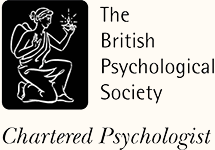CBT (Cognitive Behaviour Therapy)

CBT is the abbreviation for Cognitive Behaviour Therapy. It looks at the links between how we think about a situation (Cognitions) and how this affects the way we act (Behaviours), and in turn how our actions can affect how we think and feel. The aim of CBT is to help you to ‘catch’ unhelpful thoughts and notice thought patterns that cause you distress and upset, consider alternative thoughts, and change the way you respond to situations so that the outcome is more positive or effective. CBT is a collaborative therapy; you come to therapy as the expert in your own experiences and the therapist works with you to help apply CBT ideas and tools to your difficulties to help you overcome them.
CBT is goal-focussed, time-limited, and is a structured therapy. Using this approach, both you and I will always be aware of what we are working towards, why we are focussing on particular issues, and the rationale for you experimenting with ‘new’ behaviours / responses to situations.
I offer CBT as part of a complete and comprehensive therapy plan, which includes: a detailed assessment; making sense of your difficulties using a CBT framework, setting achievable goals for therapy; teaching you how to apply CBT to help you manage your emotions more effectively; setting you tasks between sessions to practise the skills you are learning in the sessions, to help you test out and adapt them to your life; and helping you consider how to use CBT as a ‘self-help’ approach once therapy ends.
CBT is a highly evidence-based treatment for a wide range of issues, including depression/low mood, anxiety, PTSD, low self-esteem, negative body image, and mood swings.



